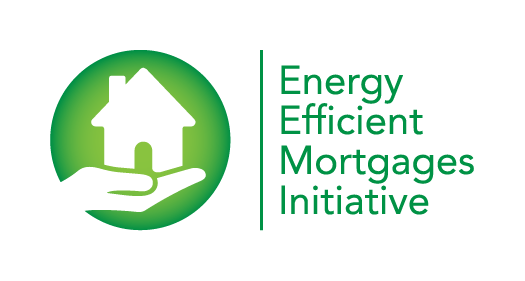❯ 2 – Making the business case
The second phase of the EEMI has been dedicated to empirical evidence gathering. Over time, it became clear that the “business case” for energy efficiency could only be communicated to the market through clear data from reliable sources.
In particular, indications that the degree of energy efficiency of a building could impact on credit quality and, therefore, on banks’ capital requirements, pointed to a potentially strong business case for banks, which would drive the development of the “virtuous circle.”
This potential link triggered two important processes
Firstly, the EEMI set about designing an infrastructure to manage the collection, processing and disclosure of data on EEM to support banks in:
❯ originating new EEM;
❯ issuing green (covered) bonds and facilitating ESG investor due diligence; and
❯ tagging existing EEM in banks’ loan portfolios;
❯ evidencing compliance with regulatory reporting requirements. Concretely, this infrastructure consists of an EEM data collection template, an EEM data disclosure template, otherwise known as the Harmonised Disclosure Template (HDT) at the heart of the EEM Label (see next section), and a blueprint for a data portal.
Secondly, the EEMI conducted an in-depth data collection and analysis exercise in Belgium and the Netherlands, and most recently in Italy, which has delivered strong evidence that the more energy efficient a building, the lower the credit risk for the bank.
This pioneering research has since triggered similar analysis in the UK, as well as further elaboration of the earlier analysis conducted under the EEMI into the Dutch market which reinforces the finding that energy efficient mortgages present a lower credit risk than others and moreover indicates that this relationship has a greater impact in relative terms on borrowers with less disposable income. Research is underway in other markets.

Sitemap
Copyright © Energy Efficient Mortgages Initiative


The project DeliverEEM has received funding from the European Union’s LIFE 2023 programme under grant agreement No.101167431. The EeMAP, EeDaPP, EeMMIP projects have received funding from the European Union’s Horizon 2020 research and innovation programme under grant agreements No. 746205, No. 784979 and No. 894117 respectively
Privacy Overview
| Cookie | Duration | Description |
|---|---|---|
| cookielawinfo-checkbox-analytics | 11 months | This cookie is set by GDPR Cookie Consent plugin. The cookie is used to store the user consent for the cookies in the category "Analytics". |
| cookielawinfo-checkbox-functional | 11 months | The cookie is set by GDPR cookie consent to record the user consent for the cookies in the category "Functional". |
| cookielawinfo-checkbox-necessary | 11 months | This cookie is set by GDPR Cookie Consent plugin. The cookies is used to store the user consent for the cookies in the category "Necessary". |
| cookielawinfo-checkbox-others | 11 months | This cookie is set by GDPR Cookie Consent plugin. The cookie is used to store the user consent for the cookies in the category "Other. |
| cookielawinfo-checkbox-performance | 11 months | This cookie is set by GDPR Cookie Consent plugin. The cookie is used to store the user consent for the cookies in the category "Performance". |
| viewed_cookie_policy | 11 months | The cookie is set by the GDPR Cookie Consent plugin and is used to store whether or not user has consented to the use of cookies. It does not store any personal data. |
